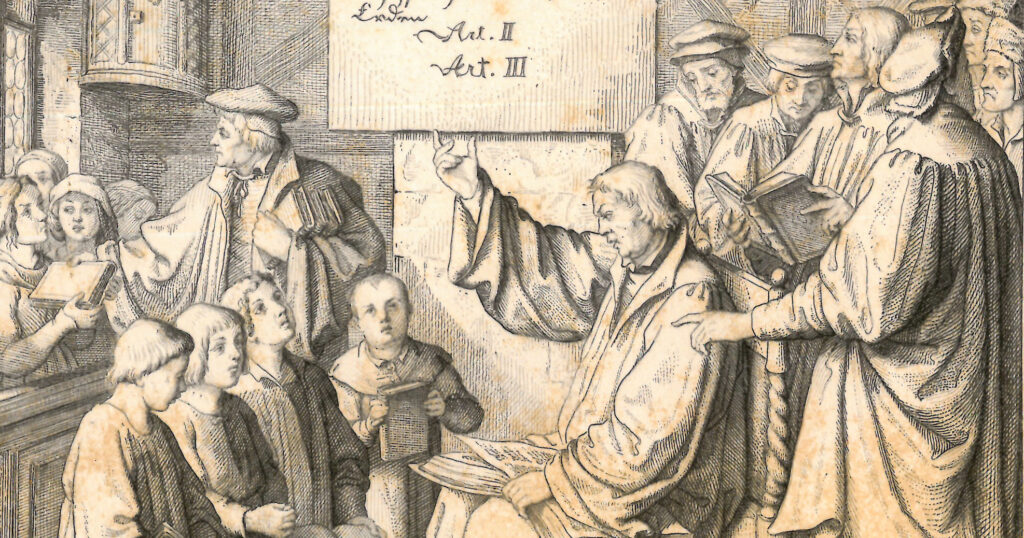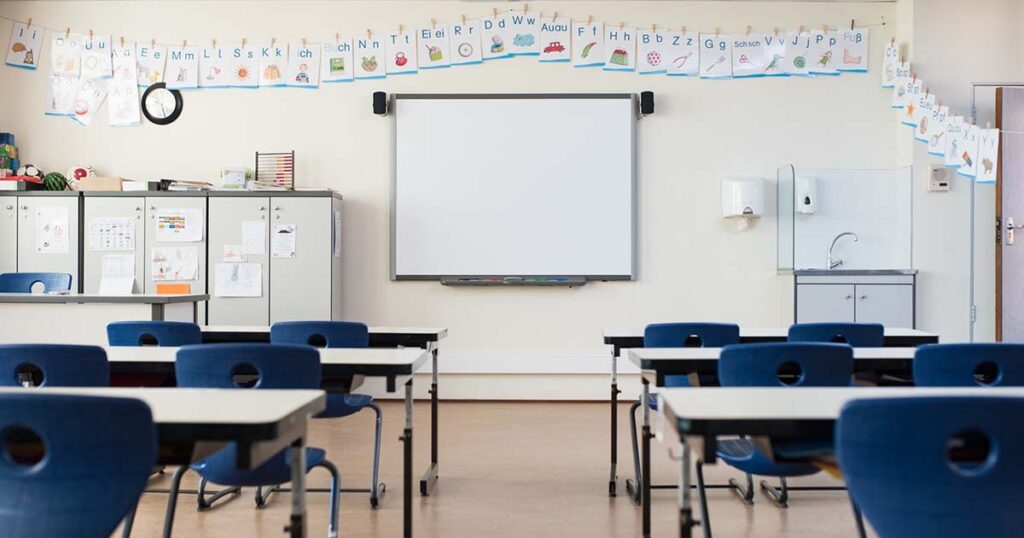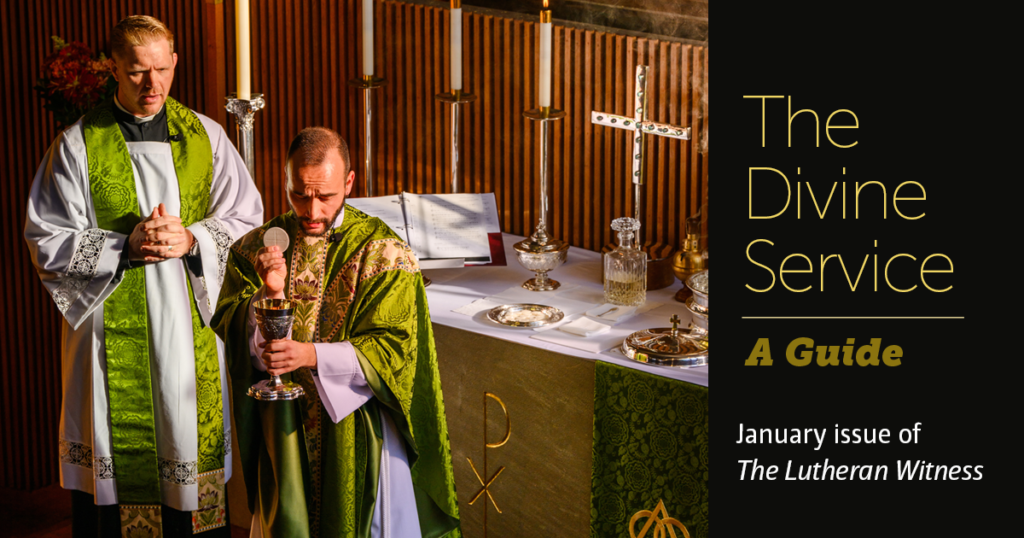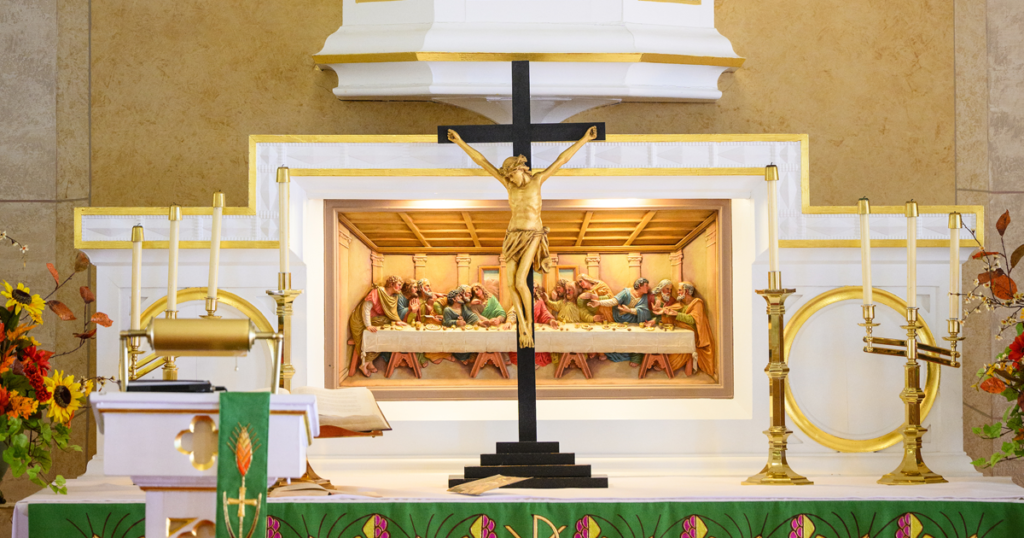By Kate Deddens
Lutheran education is the beneficiary of an immensely rich heritage. Martin Luther pioneered a vision of learning rooted in the liberal arts combined with catechesis in the faith.[1] Through his endeavors, the reformers revolutionized learning in 16th century Germany and influenced education on a global scale for centuries.
The great heritage of Lutheran education
Luther passionately advocated for and fostered the growth of faith-filled, well-educated and vocationally-minded Lutherans who expressed love of God as they worshipped together in thriving communities, bringing blessings to society through love of neighbor. During the Reformation, vast numbers of students began attending schools — something that had traditionally been reserved solely for elites. Further, with Luther’s urging, primary schooling was created, and at his instigation girls were given the opportunity to become educated in ways that had previously been inaccessible to them.[2]
Educational reforms such as these had massive reverberations across time as well as geographic distance. In the United States in particular, from the earliest years of The Lutheran Church—Missouri Synod the educational vision of the reformers has been embodied. Almost all early LCMS congregations founded schools for their children, many simply small one-room schoolhouses which bore fruit much greater than their size would have suggested.
Thanks to the work of Lutherans who embraced that endeavor, today we have cause for celebration: These dedicated efforts led to what is now the second-largest Christian parochial school system in the United States. This is indeed great cause to give thanks to God.
The decline of contemporary schools
Today, contemporary education across all spectrums, from elementary schools through collegiate institutions, is undergoing upheaval in our swiftly changing world. It is sobering to recognize that we face challenges strikingly similar to that which Luther himself encountered. He wrote that, in his day, education was deteriorating to the extent that schools were “left to go to wrack and ruin.”
Although Luther wrote those words in 1524, they hit uncomfortably close to home. The effects of educational policies during the COVID-19 pandemic have been a contributing factor to educational decay (although a downward trajectory was noticeable even prior to the pandemic). Compounding that, we face debilitating teacher shortages and societal stressors such as a “demographic cliff” combined with a weakening trust in the value of contemporary educational institutions and modes of instruction. These factors are negatively affecting all levels of education from kindergarten through the university.
Lutheran education has felt the burden of these challenges, eroding the results of Martin Luther’s zeal and the laudable labors of those who followed in his footsteps. As a result, we have witnessed Lutheran schools and universities straining beneath intense societal pressures, hundreds closing their doors. Unfortunately, the effect has been fewer Lutheran students in a smaller number of Lutheran schools and fewer Lutheran church workers and teachers equipped to serve in our communities.
Facing the challenges, and changing the world, like Luther
Yet we should — and must! — take heart, just as Luther himself did 500 years ago. His wisdom consistently speaks powerfully into the Lutheran educational landscape. We can remember and be edified by the kind of learning community which Luther and his associates crafted, by which they revolutionized education in their own time. In doing so, we will fortify our inheritance, energizing Lutheran education and invigorating The Lutheran Church—Missouri Synod as a whole, as well as positively affecting our society at large.
This inheritance combines the liberal arts with Lutheran catechesis, melding together Christian faith with the life of the mind such that doctrine and academics seamlessly integrate to strengthen Lutherans simultaneously in their belief and in their vocations. As Gene Veith has written, “the liberal arts can equip a child for effective service in the world; catechesis can equip a child for everlasting life.”[3]
There are manifold ways in which the Lutheran faith enlivens education. A uniquely Lutheran vision stands out starkly amid the modern pedagogical theories prevalent today (most of which ground education merely in utilitarian functions and worldly goals). Among others, these distinctives include the doctrines of the Two Kingdoms and of vocation and the right understanding of the use of reason in academics beneath the governance of faith.
These doctrinal hallmarks existed harmoniously with Luther’s transformation of education in his own era. He encouraged leaders of his time to nurture well-rounded education, embracing a liberal arts curriculum, in contrast to an over-emphasis on specialized studies. Over the course of recent years, within the broad scope of Lutheran learning communities, it has been uplifting to see how Lutheran universities, schools, microschools, hybrid schools, homeschools, and co-ops have been seeking to follow the example of their forefathers — heeding the wisdom of Luther’s voice as they actively embrace the heritage of our Lutheran education.
As Lutherans, it is our legacy and our privilege to carry such education forward into the 21st century with dedication, enthusiasm and hope. We can take encouragement from our forebears, who ardently believed in Luther’s exhortation that Christians are to be taught, and with prayerful hearts continue to nurture the blessings of Lutheran education and the Lutheran church for many generations to come.
[1] Steven A Hein, et al., A Handbook for Classical Lutheran Education (Fort Wayne: CCLE Press, 2013), p. 115.
[2] Thomas Korcok, Lutheran Education: From Wittenberg to the Future (Saint Louis: Concordia Publishing, 2011 ), pp. 63-64.
[3] Thomas Korcok, Lutheran Education: From Wittenberg to the Future (Saint Louis: Concordia Publishing, 2011), p. xii.






My daughter was privileged to attend Lutheran day schools MDO through high school. I, on the other hand, only attended Lutheran kindergarten, and that was because my hometown had no public-school kindergarten in 1965. The rest of my schooling was in public schools, although I attended Sunday School, church, VBS, Bible class, and my parents encouraged me to study the Bible on my own. Lutheran schools can be great, but they are not the only way to teach the faith. Maybe more support for public schools and Sunday schools should be encouraged? I taught in public schools for 32 years, and the caricature that they are churches of secular humanism gets tiresome. We love to bust on parents who leave confirmation instruction to the pastor. Aren’t we kind of doing the same by implying that the type of school matters more than what the parents do?
What role has Lutheran theology played in the political, social and cultural spheres of a society?
How useful is the application of Lutheran theology in the Indian environment even after 100 years?